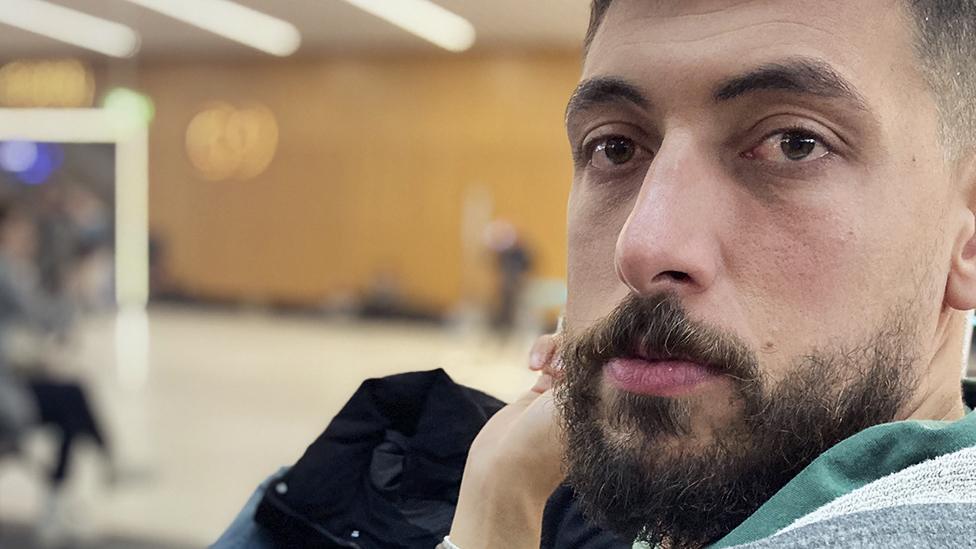Turkey-Syria earthquake: Watching the search for family on Zoom
- Published
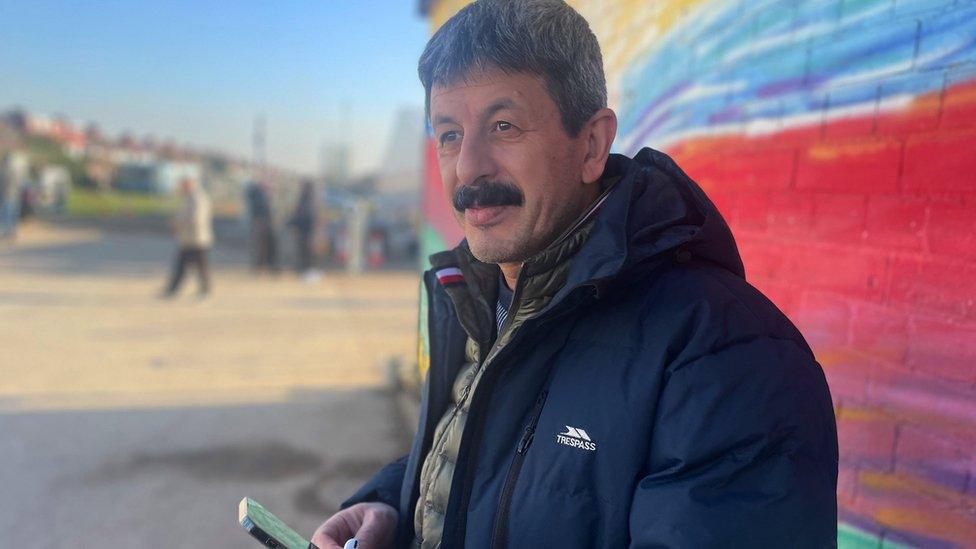
Lutfi Erguven hopes for good news about his cousin while watching rescuers search through rubble
Outside a small community centre in Enfield, north London, Lutfi Erguven is intently watching something on his phone.
On the small screen, rescuers can be seen digging through rubble. They're looking for people trapped in wreckage in Mr Erguven's home town in southern Turkey. A series of earthquakes hit southern Turkey and northern Syria on Monday morning, killing more than 15,000 people - a death toll that is expected to rise.
He isn't watching a clip from a news bulletin, Mr Erguven tells BBC News - it's a Zoom call. Rescue teams are sharing their efforts in a video call so that Turkish people in the UK and elsewhere can join the search for their loved ones remotely. Mr Erguven has given them the name of his cousin. He hopes that they find him alive.
"They haven't found my cousin yet, but they've found other people," he says. "That's good news for us as well."
Mr Erguven explains that he has travelled from his home in Edinburgh down to London to join others from his community in person. While there are Turkish communities across the UK, the vast majority live in north London. Mr Erguven is also Alevi, a minority religion that is prevalent in the worst-hit areas of southern Turkey.
The Zoom link, he says, has been shared in Turkish WhatsApp groups. Dozens of people have been joining in the hopes of finding out their loved ones are safe.
In normal times, the British Alevi Federation centre focuses on more light-hearted community activities, such as Turkish music classes and beginners' cycling courses for adult women. But now it has arranged an emergency relief trip, with a small group of people flying into the country before driving long-distance to badly affected areas. They're also transporting large containers full of blankets, heaters, and toiletries.
Atescan Ates, a second-year law student, tells BBC News that, as soon as they heard about the disaster, he and other younger people immediately used social media to organise donations.
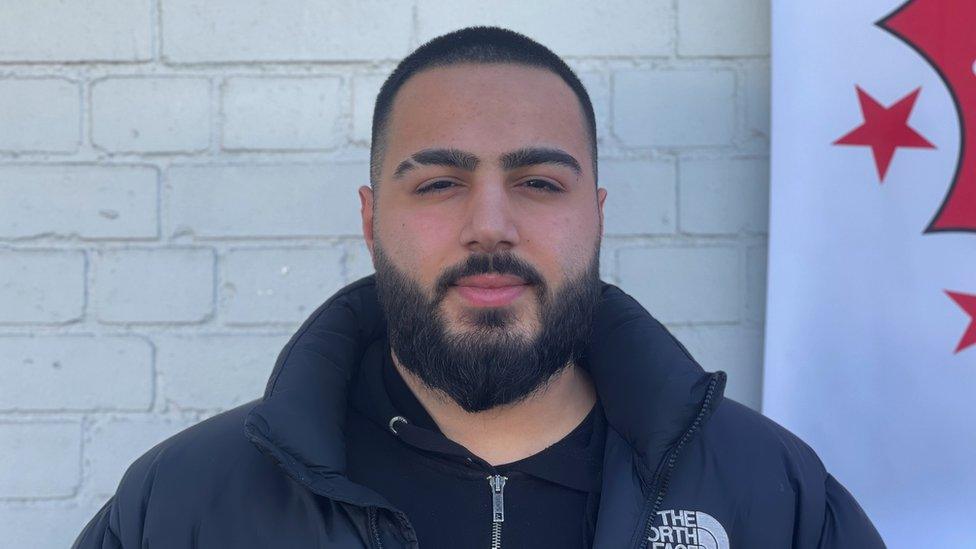
Ates Atescan drove across London collecting donations
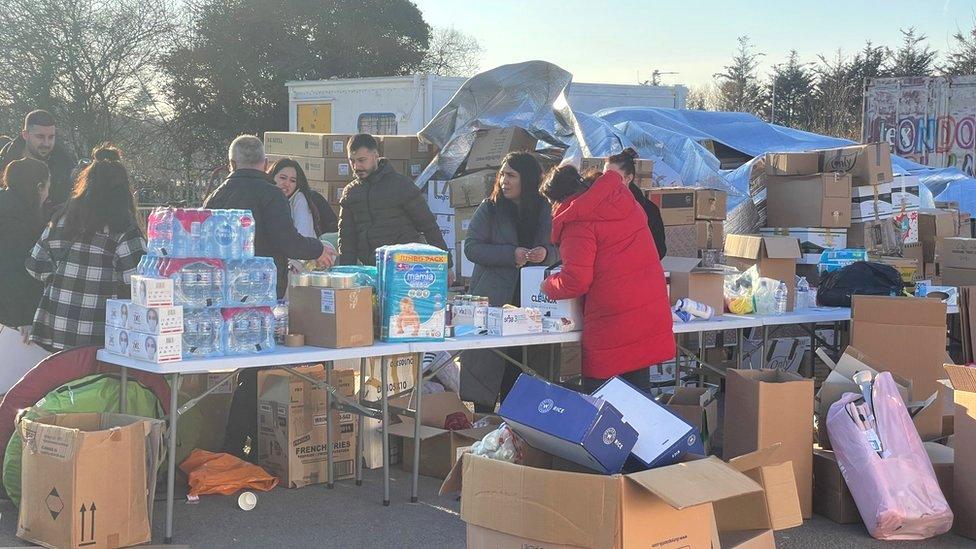
People have donated water, blankets and heaters
"A lot of us have a decent amount of followers on social media, so we started posting: 'These are the places you can go to to donate - if you can't go, contact us, and we'll come and pick donations up directly from your house'," he says. "We drove around London, from south to north, everywhere, on Monday and Tuesday."
They then worked through the night until about 01:00 on Wednesday, packing the donations up, ready to be transported to Turkey on Wednesday afternoon.
"It was a massive communal effort," Mr Ates says. "Unfortunately, in the past few decades, there's been quite a lot of divide among the people of Turkey - whether it's the Turks, Kurds, Alevis or Sunnis. But you can see, when a disaster happens, everyone can put everything aside and come together. We may be different but our families, our neighbours - they're all under the same rubble."
Silan Polat and Sevgi Akgoz are part of the group that's been sorting through donations. The trip, they say, is going to be a struggle for those going.
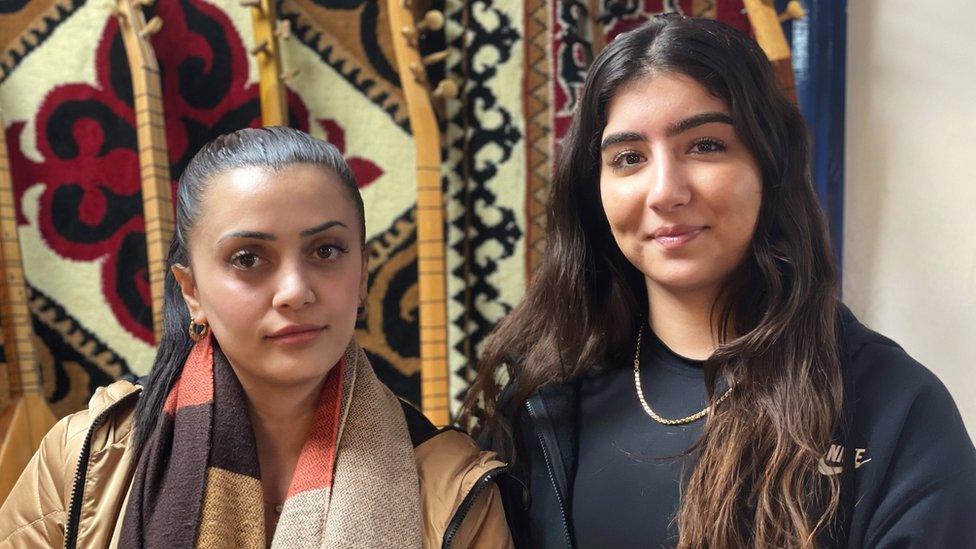
Sevgi Akgoz, left, and Silan Polat, right, are worried about family in Turkey
"Some of the villages are blocked off because the roads are damaged, so people from here are going to try and access those areas however they can," Ms Akgoz says. "There's no electricity, so some people can't even contact us to let us know where they are or what they need."
Her mum's cousin, she adds, is now homeless and "trying to survive in their garage" with their children in -3C temperatures. Others in their village are sleeping in their cars, or out on the street.
Ms Polat, whose dad is one of the people going to Turkey, adds: "It's such a poor area. We go to our parents' and grandparents' villages, and people think 'oh there's technology, people have phones' - they don't, it's a different realm. They don't have access to anything, so they didn't have any pre-warning [about the earthquake]. They don't have news, they don't have electricity or computers."
Many of the buildings that collapsed, she adds, were built recently - and were supposed to withstand earthquakes.
"This scale of disaster could have, and should have, been prevented," Ms Polat says.
Ms Akgoz says she's been heartened to see people come together - but also can't help but feel guilty.
She says: "I feel ashamed to sit in my warm house. I feel ashamed to feel full. When I'm about to sleep, I feel ashamed to sleep because I know my family and my friends, my loved ones are there freezing in the cold."
Related topics
- Published9 February 2023
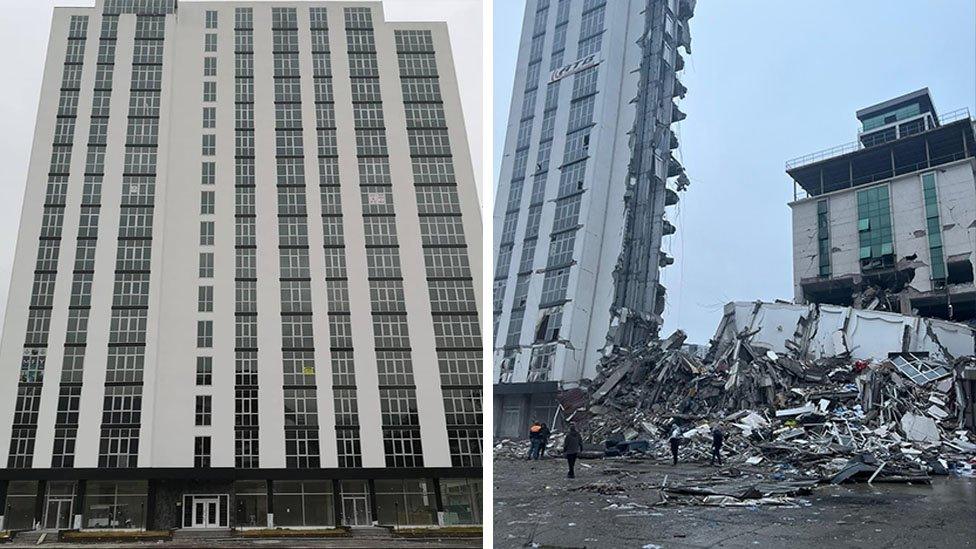
- Published8 February 2023
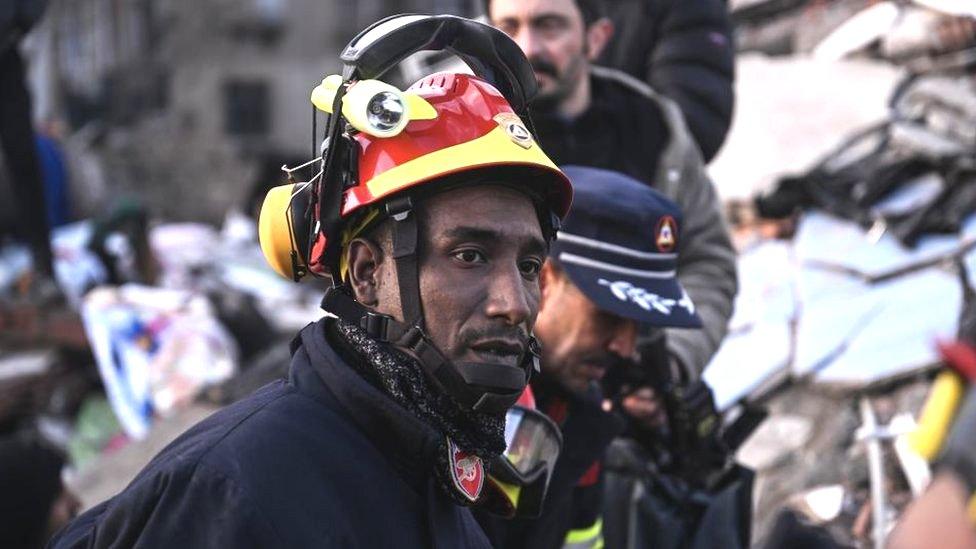
- Published8 February 2023
